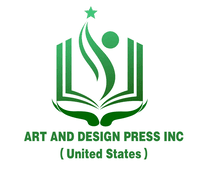Author’s declaration of conflict of interest
At the time of submission, authors must declare any (potential) conflicts or competing interests with any institutes, organizations or agencies that might influence the integrity of results or objective interpretation of their submitted works. Conflicts of interest can be divided into two categories: financial and non-financial.
Authors should declare financial conflict of interest based on the following aspects:
- Author relation with the funding body and any potential conflicts of interest should be declared if the organization may gain or lose financially through the article publication. Disclosure should also include all sources of revenue paid (or promised to be paid) directly to authors or their institution on authors’ behalf over the 36 months before submission of the relevant work.
- Any changes to the employment status of authors in any organizations, including resignation, current employment in another organization, and anticipated employment, should be declared if the organization may gain or lose financially through the article publication.
- Ownership of stocks or shares by the authors in any organizations should be declared if author(s) may gain or lose financially through the article publication.
- Receiving consultation fees or other forms of remuneration (including reimbursements for attending conferences) from organizations should be declared if the organization may gain or lose financially as a result of article publication.
- Status of patents or patent applications (either awarded or pending) filed by the authors or their institutions should be declared if their value may be influenced by the article publication. Patent application number, patent applicant, name of inventor(s), application status, and specific aspect of paper covered by the patent application’s specification and/or claims should be disclosed.
Authors should declare any (potential) non-financial conflicts of interest and declare any unpaid roles or relations that may influence the decision on the article publication. This includes, but is not limited to, unpaid role in a government or non-governmental organization, unpaid role in an advocacy or lobbying organization, and unpaid advisory position in a commercial organization.
Reviewer’s declaration of conflict of interest
Assigned reviewers should declare competing interests arising from processing and reviewing the assigned submission. Since we adopt double-blind peer review in most of our journals and assume that the author identity has been completely masked to the best of our effort, the most important question that could reasonably be perceived as interfering with reviewer’s peer review of the manuscript is: Could he/she profit or be negatively impacted financially by the peer review of the assigned manuscript?
If the reviewer’s answer to this question is “yes,” he/she should immediately inform the handling editor.
Editor’s declaration of conflict of interest
Editors who have competing interests arising from handling a submission should make a declaration (preferably during submission pre-screening stage) and withdraw themselves from handling the submissions any further.
Read more about our cookies here
